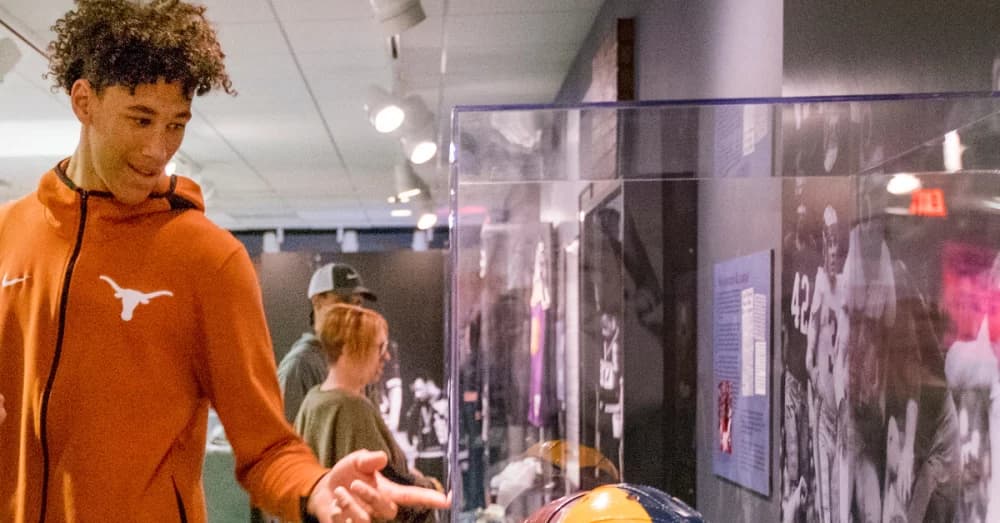‘That Video is NOT Me’: Jaxson Hayes’ Girlfriend Clears Up Rumors Amid Domestic Violence Investigation

In recent days, NBA center Jaxson Hayes has found himself back in the spotlight, not for his performance on the court, but due to an unresolved chapter from his past that has resurfaced. Hayes, now a member of the Los Angeles Lakers, is currently under scrutiny as an old investigation concerning allegations of domestic violence reopens. The center of the controversy lies in a doorbell video that recently emerged, depicting a heated argument between Hayes and his former girlfriend, Sophia Jamora. The footage has reignited discussions surrounding the incident, and as it circulates online, Hayes’ current girlfriend, Casey Braxton, has felt the need to address the public directly, stating emphatically that that video is NOT me.
Jaxson Hayes might be done.NBA is investigating this video of him with his gf. pic.twitter.com/iAJwrDZA2j— BricksCenter (@BricksCenter) November 3, 2024
The resurfaced video captures a tense exchange between Hayes and Jamora, in which Jamora is seen accusing him of domestic violence. At one point, Hayes appears to spit in Jamora’s direction, a gesture that has polarized public opinion and intensified the spotlight on Hayes’ personal life. With the investigation back in motion, Braxton found herself amidst the whirlwind of speculation, as fans and social media users questioned whether she was the woman in the clip. To address this, Braxton took to Instagram, stating firmly, “That video is NOT Me. I appreciate the love and kindness, but that video is NOT Me. No need to follow or dm.” Her statement was an effort to shut down misinformation while showing support for Hayes as he navigates the reopening of a difficult chapter.

The post quickly garnered attention and was widely shared as Braxton’s followers, and fans of Hayes, showed their support for her clarity and transparency. By clearly stating, “That video is NOT Me,” Braxton aimed to establish her separation from the incident and to clear up any speculation that could fuel further misunderstandings. Despite her candid response, questions remain among fans and the media, both about the incident itself and the role it may play in Hayes’ future.
Hayes, who previously played for the New Orleans Pelicans before joining the Lakers, has been working to shift the focus back to his athletic career. So far this season, he’s proven himself as a key backup for Lakers star Anthony Davis, averaging 5.0 points and 4.2 rebounds across six games. However, the allegations are now casting a shadow over his season, diverting attention from his performance on the court to his personal life off of it. The situation also poses challenges for the Lakers organization, which is now contending with the added scrutiny that often accompanies high-profile allegations against one of its players.
Lakers head coach JJ Redick, who has just begun his tenure leading the team, acknowledged the situation during a press conference. Redick confirmed that the organization is aware of the investigation’s reopening and emphasized that the team would cooperate fully with any legal proceedings. “We’re obviously aware that the investigation has been reopened, and we’re going to cooperate fully,” Redick stated, offering a balanced approach to the issue. However, he remained tight-lipped, adding, “But other than that, I’m not going to have another comment on that.” Redick’s restrained response reflects the Lakers’ commitment to transparency while focusing on maintaining unity within the team amid external pressure.
JJ Redick on the NBA reopening its investigation into a 2021 domestic incident with Jaxson Hayes: “We’re obviously aware that the investigation has been reopened and we’re going to cooperate fully. But other than that, I’m not going to have another comment on that.”— Jovan Buha (@jovanbuha) November 3, 2024
This is not the first instance where the NBA has had to navigate complicated allegations involving one of its players. Last season, for example, the Oklahoma City Thunder allowed Josh Giddey to continue playing even as an investigation around him unfolded. Teams often take different approaches when handling such situations, with some opting to keep players away until investigations conclude, while others choose to retain them to maintain consistency and morale within the organization.
This situation surrounding Jaxson Hayes highlights the increasingly blurred lines between athletes’ private lives and public scrutiny. With social media magnifying every facet of their lives, players like Hayes are often forced to address private matters in the public eye. Braxton’s decision to clarify her involvement is understandable, as her social media presence quickly became entangled in the ongoing debate. Her direct response has resonated with those sympathetic to her desire for transparency, although it may not entirely quell the curiosity of fans and critics eager to uncover more.
As the investigation unfolds, the complexity of Jaxson Hayes’ case serves as a reminder of the pressures athletes face, both on and off the court. While the public’s demand for accountability is justified, it’s also important to recognize the impact that such scrutiny can have on the lives of those indirectly involved. Braxton’s assertion, “That video is NOT Me,” underscores her commitment to distancing herself from past controversies and moving forward with clarity. This situation also raises questions about the role of the media in handling such sensitive topics, especially when personal relationships intersect with public personas.
Hayes and the Lakers will undoubtedly remain under close watch as the investigation progresses, and there’s a palpable uncertainty surrounding his availability. For now, the organization is exercising caution and placing its trust in the legal process, demonstrating a level of sensitivity to both public perception and individual privacy. Redick’s approach, though cautious, provides a framework for managing such situations with integrity, and his approach may serve as an example for other teams faced with similar challenges.
The outcome of Hayes’ investigation could potentially have a far-reaching impact—not just on his season, but on the policies that guide sports organizations in dealing with complex cases involving their players. As public discourse around accountability and privacy continues to evolve, Hayes’ situation exemplifies the fine line that professional athletes must walk, balancing their personal lives with the demands of their careers and public personas.





